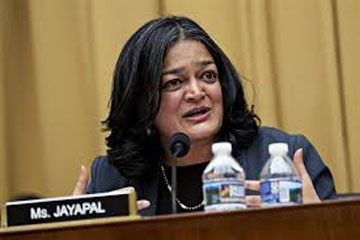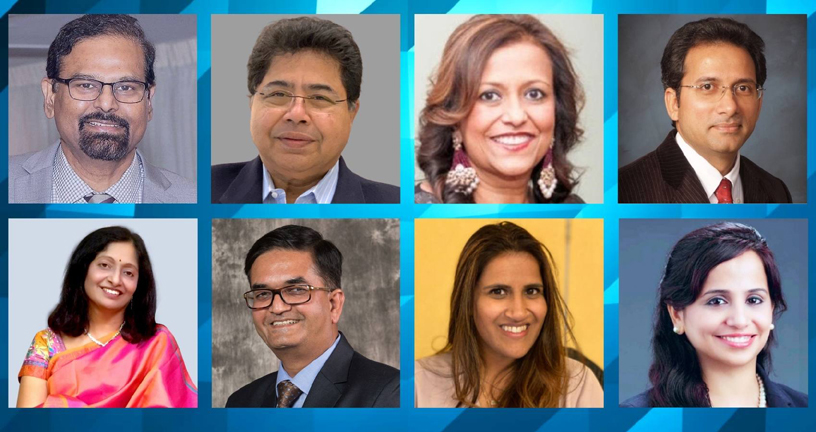
WASHINGTON (TIP): Asserting that corporations are not people and money is not speech, 50 Members of US Congress led by Indian American Pramila Jayapal have introduced an amendment to the Constitution that would end corporate personhood. By specifying that the rights provided by the Constitution are for people — not corporations, the joint resolution introduced Tuesday, April 6, would reverse the Supreme Court’s Citizens United v. Federal Election Commission ruling, and “put power back into the hands of people.”
The resolution co-sponsored among others by Indian American Rep. Ro Khanna also works to get big money and special interests out of politics after the most expensive election campaign in American history.
Additionally, the joint resolution mandates that Federal, state, and local governments require that all political contributions and expenditures be publicly disclosed.
“Corporations are not people and money is not speech,” said Washington Representative Jayapal in a press release.
“After the most expensive election in American history in which special interests poured millions in dark money into campaigns across this country, the We the People Amendment finally returns the power to the people, ends corporate constitutional rights, reverses Citizens United, and ensures that our democracy is really of the people, by the people — not corporations.”
Local and national groups including Move to Amend, the release said, endorse the us the People Amendment.
As political spending by large corporations skyrocketed, the 2020 election easily became the most expensive in American history — more than doubling the total cost of the record-breaking 2016 election cycle, Jayapal noted.
Spending for the presidential, House, and Senate races spiked to over $14 billion. While the presidential election drew nearly $6 billion, congressional races witnessed $8.7 billion in total spending.
This resulted in nine of the 10 most expensive Senate races in history and half of the 10 most expensive House races in history occurring in the 2020 cycle, the release said.
Additionally, the Center for Responsive Politics reported a shift to large donation strategies, with the top 10 donors contributing over $640 million during the cycle, mostly to independent PACs who are unbound by spending caps.
There is extensive support for reining in campaign spending, the release said citing a survey saying more than 75% of people support limits on the amount of money individuals and organizations can spend on campaigns.
This includes 71% of Republicans and Republican-leaning independents. Additionally, 90% of people say it is important that donors not have more influence than others in our political system.
Meanwhile, in California, Democratic state Assembly members Alex Lee and Ash Kalra recently introduced AB-20, the Clean Money Act of 2021, which would outlaw candidates for state office from accepting campaign contributions from businesses, according to commondreams.org.
Speaking Tuesday, April 6, at a Zoom press conference ahead of a San Francisco Board of Supervisors vote on a resolution backing AB-20, Kalra tied the bill to Jayapal’s proposed constitutional amendment, calling the measures “complimentary.”
“Each individual should have an equal voice in the election process, but big corporate donations skew the narrative and creates a fracture in our democracy and hurts those of us who don’t have the resources to compete,” he said.





1 Trackback / Pingback